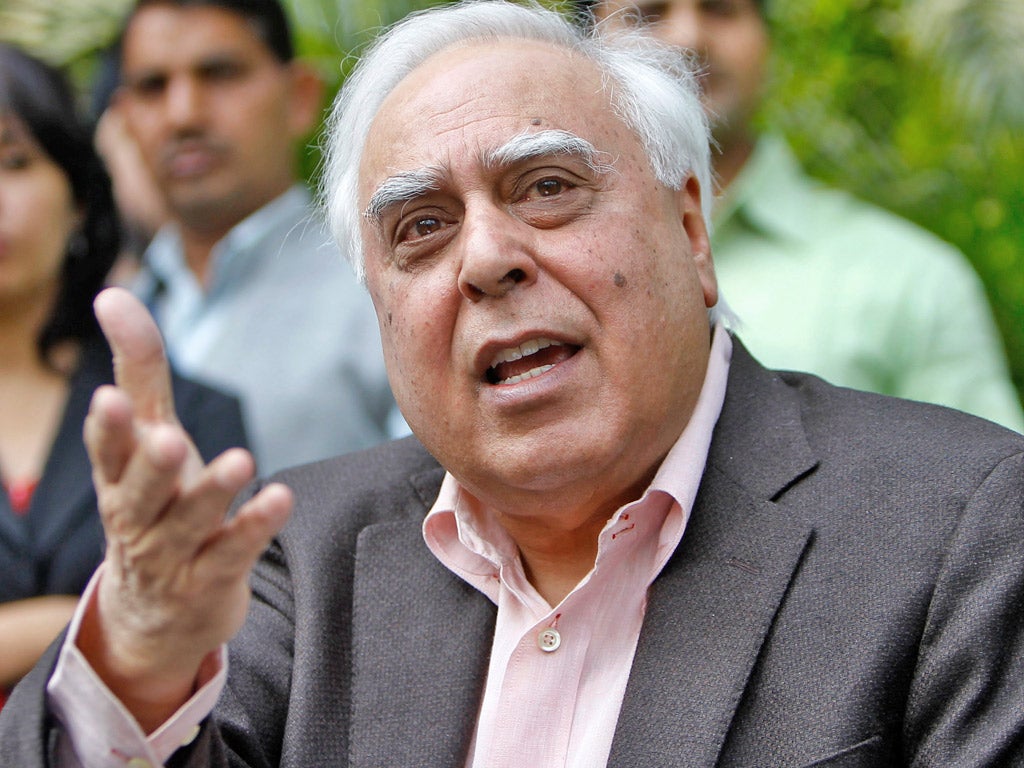India cries censorship after minister tells Google to screen out 'offensive' content
Government ready to impose control over culturally sensitive material on websites

Your support helps us to tell the story
From reproductive rights to climate change to Big Tech, The Independent is on the ground when the story is developing. Whether it's investigating the financials of Elon Musk's pro-Trump PAC or producing our latest documentary, 'The A Word', which shines a light on the American women fighting for reproductive rights, we know how important it is to parse out the facts from the messaging.
At such a critical moment in US history, we need reporters on the ground. Your donation allows us to keep sending journalists to speak to both sides of the story.
The Independent is trusted by Americans across the entire political spectrum. And unlike many other quality news outlets, we choose not to lock Americans out of our reporting and analysis with paywalls. We believe quality journalism should be available to everyone, paid for by those who can afford it.
Your support makes all the difference.The Indian authorities have sparked outcry by demanding internet companies such as Google and Facebook pre-screen material on their websites and remove anything Indians might consider offensive.
The country's telecommunications minister, Kapil Sibal, confirmed yesterday that the government was preparing a plan for controlling such material, after the large internet firms he had approached had failed to come up with a proposal for self-regulation.
"This is a matter of great concern to us. We have to take care of the sensibility of our people," he told a press conference. "We are seeking their cooperation, and if somebody is not willing to co-operate on incendiary material like this, it is the duty of government to think of steps that we need to take.
"We don't want to interfere in freedom of the press, but this kind of material should not be allowed."
Officials claimed Mr Sibal was in particular trying to prevent the spread of material that was offensive to various religious or ethnic communities. Yesterday, before the press conference in Delhi, he shared details of a website that showed pigs running through the city of Mecca – images that would be deeply offensive to Muslims.
But he also referred to material that purportedly showed Prime Minister Manmohan Singh and Sonia Gandhi, leader of the ruling Congress Party, in compromising positions. Other reports suggested that he had expressed particular concern during his meetings with internet firms in recent months over offensive material relating to Mrs Gandhi
"I believe that no reasonable person aware of these sensibilities of large sections of communities in this country, and aware of community standards as they are applicable in India, would wish to see this content in the public domain," Mr Sibal said.
The announcement sparked instant controversy, especially on the internet, with people accusing the government of threatening to limit free speech.
Many questioned whether the move would be technically possible. India has around 100 million internet users, and is placed fourth behind China, the United States and Japan in global rankings. The number of users is growing all the time.
"The statement... is a blow to Indian democracy. I feel such a policy will only lead to a curtailing of basic freedom of expression," said Aditya Raj Kaul, an online activist and journalist.
"As a journalist, I fear the days of [a State of Emergency] are not far away if such measures are forced in our system."
Facebook said it would remove material that was "hateful, threatening, incites violence or contains nudity". Its statement added: "We recognise the government's interest in minimising the amount of abusive content that is available online and will continue to engage with the Indian authorities as they debate this important issue."
This is not the first time that the authorities in Delhi have clashed with information technology companies.
Last year, the government threatened to ban the use of BlackBerry devices amid concerns over access to encrypted information.
Research In Motion – maker of the BlackBerry – provided some information to the authorities, but declined to permit the monitoring of its email. The government subsequently backed down.
Join our commenting forum
Join thought-provoking conversations, follow other Independent readers and see their replies
Comments